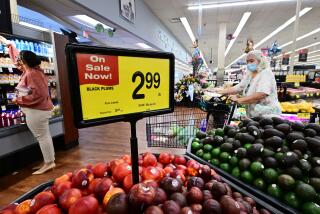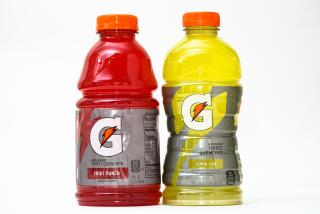TREND WATCH
A roundup of business developments spotted by other publications. Safe Computing: IBM has jumped into an industry that will benefit from the nation’s recent brushes with the wrath of Mother Nature: disaster recovery. There’s nothing like an earthquake or a hurricane to make companies realize how vulnerable their computers are. And with more companies putting more of their work onto computers, the potential for the disaster recovery market is huge. Companies such as Comdisco and SunGard Recovery Services provide companies with facilities in which they can do their computer work when some disaster (flood, fire, quake) affects their machines. Comdisco, the market leader, has been in the business for years, but IBM’s entry into the market helps improve the industry’s credibility. Based on the increasing number of computerized businesses and their growing concerns about possible disasters, IBM predicts that this business will grow about 25% a year. Tampa Tribune
Cola Wars Bubbling in Europe: While the cola war rages on in the United States, European battles are growing fiercer. France, in particular, is the site of Pepsico’s struggle with Perrier over the French company’s alleged failure to effectively market Pepsi products. The American giant’s French market share has fallen to 9% today from 17% in 1980, resulting in Pepsi dropping Perrier as its bottler and distributor. Perrier says it will fight Pepsi in court over its contract, which still has 33 years to go. At stake is a market with huge potential: Americans consume six times more soft drinks than the French. Regardless of whether Pepsi wins or loses, the war over European market share is expected to continue, moving into Italy, West Germany and the Benelux countries in the near future. (London) Sunday Times
Ferrous Fair: Steel can makers will soon have to gird themselves for a fight in a new arena: large food cans. Van Dorn, known for its plastic molding machinery, is joining forces with Alcoa and a California can maker to produce aluminum food cans at a new plant in Iowa City, Iowa. The cans, which will hold 14 to 16 ounces, are made of a stronger alloy than is used on beverage cans and are coated in a process developed by Alcoa. The plant is expected to produce 200 million cans a year within two years, and the manufacturers hope eventually to garner 30% of the food can market. Crain’s Cleveland Business
Face Lift: Drugstores and cosmetics, like Fred Astaire and Ginger Rogers, were made for each other. In recent years, however, that relationship was neglected by drugstore chains as the retailers concentrated on broadening their offerings. In an effort to get back to core business, many drugstores are putting more money into updating and expanding their cosmetics departments. At the same time, retailers are placing more emphasis on service by hiring cosmeticians and adding clerks to the department. Chain Drug Review
Franchise Fever: As baby boomers climb the corporate ladder and find the amount of space at the top limited by their huge numbers, many will turn to franchising as a way to get ahead. According to some industry watchers, the number of franchises will explode in the 1990s, growing as much as 29% a year. Another group estimates that the number of franchise businesses in the United States, which was 2,200 in 1986, will more than double by the year 2000. Service firms and companies not requiring prime real estate will grow fastest. And which Americans will be most likely to get into this business? Women and early retirees who can’t rely on Social Security to see them through their old age. Dallas Business Journal
More to Read
Inside the business of entertainment
The Wide Shot brings you news, analysis and insights on everything from streaming wars to production — and what it all means for the future.
You may occasionally receive promotional content from the Los Angeles Times.










